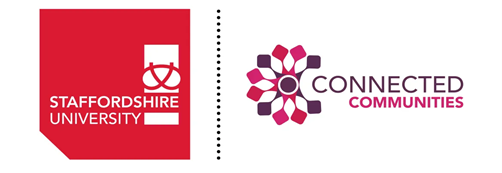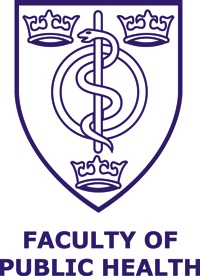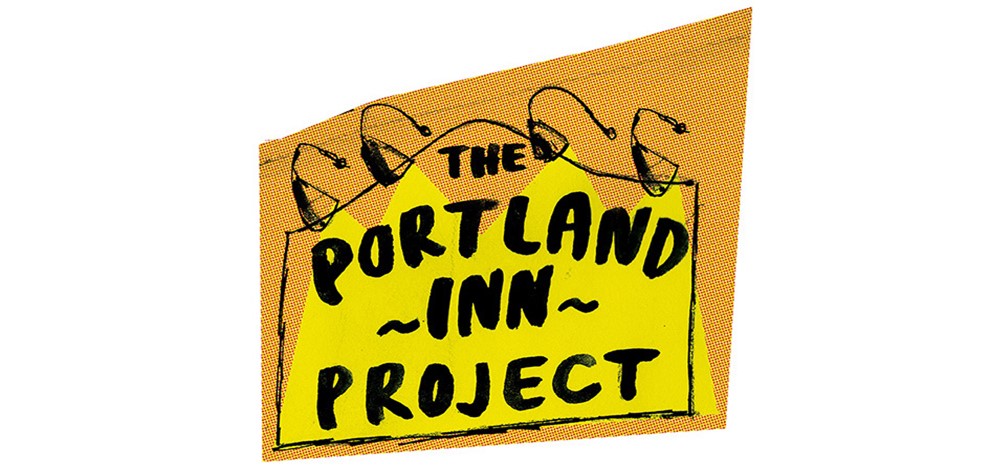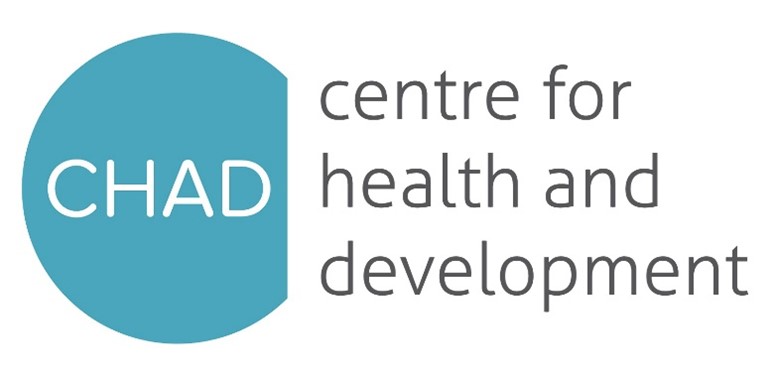Author Archives: Kerry Edge
Action on Poverty Conference – 20th June 2022 9am to 5pm
The Staffordshire University Action on Poverty and Hardship team, CHAD research centre and Connected Communities team welcome you to come and join us for our first Action on Poverty Conference on Monday 20th June 2022 9am to 5pm. This conference aims to bring together community members, activists, practitioners and researchers, voluntary and public sector leaders, public health specialists, academics, students and next generation leaders in tackling poverty to learn about the current UK poverty landscape and to share practice and research relating to addressing poverty and hardship issues. Next generation leaders include those aged 16 to 25 years who are studying a related subject (e.g., health and social care, sociology, community development, public health) and those who have lived experience and want to get more informed on how to make a positive difference.
The Action on Poverty Conference will be held in Stoke-on-Trent (5 mins walk from the train station) at the Staffordshire University Leek Road Campus from 9am to 5pm on Monday 20th June 2022. The event is free of charge and refreshments and lunch will be provided. Booking is required and delegates can opt to join us for the whole day, or for part of the day (the morning or afternoon session).
There will be keynote speakers covering a range of themes including redefining poverty, the historical UK picture of poverty, civic engagement, creative methodologies and co-production with people with lived experience of poverty, holistic health interventions for people experiencing housing insecurity and homelessness, public health sector contributions to tackling poverty, anti-poverty campaigning, leaving a legacy in neighbourhoods of deprivation and envisioning the future. Speakers include experts from Staffordshire University, the Rethinking Poverty Network, the Joseph Rowntree Foundation, the Portland Inn Project and the Faculty of Public Health. Sarah Page from the Staffordshire University Action on Poverty and Hardship team will be conference hosting. Prior to working for Staffordshire University Sarah was the partnership working manager for a Health Action Zone which aimed to tackle health and social inequalities through innovation and a presenter within community radio supporting anti-poverty organisations sharing about their work.
We have a series of breakout sessions planned and if you are interested in presenting for 10 minutes on a research project, campaign or service that you lead on, then please email Sarah.Page@staffs.ac.uk with an 200 word abstract relating to what you would like to share and any technology requirements by June 1st 2022. Our planned breakout sessions currently include working with families and young people experiencing deprivation, working with people to manage and eradicate debt, approaches to co-creating with people with lived experience, participatory research, mental health and poverty campaigning and working with asylum seekers.
There is a market stall area where organisations can display a banner and share information with others about the work you are involved with. To book a stall please contact Sarah.Page@staffs.ac.uk This is a great opportunity to showcase your work more informally to others.
To register your place, please book via our Eventbrite booking page
Event Schedule and Keynote Speaker Information:
| Time | Activity / Speakers |
| 9am | Registration, Break Out Session Sign Up, Refreshments and Market Stall Activity |
| 9.30am | Welcome – Sarah Page (Conference Host) Prof Kevin Hetherington – Deputy Vice-Chancellor of Staffordshire University Professor Kevin Hetherington previously worked at The Open University as Pro Vice Chancellor for Research, Enterprise and Scholarship. Within Staffordshire University he holds specific responsibility for research, the development of the academic strategy and providing strategic leadership on internationalisation and global connectivity. Kevin’s academic background in Cultural Sociology. Kevin has been a regional council member for the Confederation of British Industry since 2018, Professor Hetherington was also a Universities UK delegate on Brexit. Professor Hetherington has a strong research profile on urban and cultural issues, including on museums and heritage, and has authored four books and numerous peer reviewed journal articles. |
| 9.40am | Barry Knight – Author of Rethinking Poverty Author and coordinator of Rethinking Poverty Network. Barry Knight is the author of Rethinking Poverty (Bristol University Policy Press) and has authored many other books in the field of tackling poverty, community development, society and democracy. He is a frequent contributor to the Rethinking Poverty discussion hub that was stimulated by the Rethinking book. A former adviser to the Ford Foundation, the Charles Stewart Mott Foundation, he was one of the founders of the #ShiftThePower campaign. He is currently writing a history of international development and has extensive knowledge and expertise in methods to combat poverty. Barry has also worked in academia as a research fellow at Cambridge University and he has also worked as a civil servant for the Home Office. |
| 10.00am | Associate Professor Nic Gratton from Staffordshire University – Civic Engagement to tackle Poverty – Creating City Wide Impact Nic is the lead for Civic Engagement and Evaluation at Staffordshire University. She has extensive experience in community and youth work practice, starting her career as a youth worker and progressing to strategic management levels within Stoke-on-Trent Youth Services. Nic has taught on a range of short and post graduate courses, including overseeing the Get Talking participatory research short course. This participatory research approach has been used with Staffordshire Fire and Rescue Service to develop their Children and Young People’s strategy. Nic also led the Get Talking Hardship project commissioned by Stoke-on-Trent’s Hardship Commission and worked with 43 community researchers to understand the experiences of people living in hardship in the city. This work developed into Keep Talking, a UKRI Enhancing Partnerships of Place Based Engagement project in partnership with Expert Citizens CIC to understand how to develop sustainable participatory research that benefits place. Nic developed the Staffordshire University’s Connected Communities Framework and has established a Civic Fellowship scheme honouring community members for contributions to Staffordshire University. |
| 10.15am | Dr Katy Goldstraw from APLE Collective and Staffordshire University – Creative Methodologies and Co-Production Dr Katy Goldstraw is a senior lecturer in Health and Social Care. Her PhD used participatory research methods to consider voluntary sector responses to austerity. From her participatory PhD research, she has co-produced a Sustainable Livelihoods Resource Book, which is a toolkit that VCS organisations can use to facilitate an assets based organisational evaluation. She has worked in Higher Education and the Voluntary Sector throughout her career; writing on VCS assets, citizens voice, and anti-poverty participatory approaches. She has a particular research interest in using participatory arts-based research methods to include and empower the voices of previously unheard communities within her research. Katy works with APLE Collective in an Independent capacity with seeks to address poverty with lived experience. She has been involved in supporting lived experience contributions to Joseph Rowntree Foundation reports. |
| 10.30am | Q&A facilitated by Professor Chris Gidlow from CHAD |
| 10.45am | REFRESHMENT BREAK and Break Out Session Sign Up |
| 11am | Break Out Sessions and Presentations |
| 12.15pm LUNCH | LUNCH and Market Stall Opportunity |
| 1:30pm | Welcome back – Sarah Page (Conference Host) |
| 1.35pm | Professor Chris Gidlow, Fiona McCormack and Kostas Spyropoulos from CHAD – Housing First as a holistic health intervention Chris is a Professor of Applied Health Research, and Director of the Centre for Health and Development (CHAD). His research interests and activities span a range of areas, including support for people experiencing multiple disadvantage (e.g., homelessness, offending, substance misuse and mental ill health), green space/natural environments and health, and cardiovascular disease prevention through NHS Health Check. Chris has led a range of research and evaluation projects over the last 14 years, securing income from funders that include NIHR and European Commission, and published over 75 articles. Recent work includes the overall evaluation of the VOICES partnership (local implementation of the 8-year Fulfilling Lives programme to support people experiencing multiple disadvantage) and a feasibility study of digital NHS Health Checks. Fiona McCormack is a Research Officer for CHAD since 2016. Most of Fiona’s recent research sits within the Health Inclusion theme and focuses on understanding and improving experiences connected to homelessness and people with lived experience of multiple disadvantage; this includes research into city centre rough sleeping, homelessness and hospital discharge, support services for women, and Housing First. Fiona has over 12 years’ experience of working on qualitative studies related to health and social inequalities. She previously worked at the University of the West of Scotland and Glasgow Centre for Population Health, on studies of alcohol use, drugs and sex work. Kostas Spyropoulos is a Research Associate within the Centre for Health and Development (CHAD) and a part-time doctoral student. His research interests lie within the scientific spectrum of preventative and clinical-epidemiological medicine, and specifically on issues relating with the joint theoretical framework of Multimorbidity and Multibehaviours. Kostas’ research and evaluation activities also cover areas of homelessness support interventions, health equity and system change theory. |
| 1.50pm | Professor Patrick Saunders from the Faculty of Public Heath – public health and tackling poverty Patrick Saunders is a Consultant in Public Health and Visiting Professor in Public Health at the University of Staffordshire. He has held service, research, teaching and management posts with the WHO, European Union, Public Health England, local government, the NHS and a number of Universities. Following retirement from the NHS he has maintained active research, teaching and consultancy commitments to a range of bodies including the Royal College of Physicians, the Faculty of Public Health, and the National Institute for Health and Clinical Excellence. He has been involved in addressing health inequalities his entire career and continues to support a range of public and voluntary sector bodies including The Trussel Trust, England Illegal Money Lending team, the West Midlands Modern Slavery Network, Medact, the ‘Is it a crime to be poor’ unit at the University of Birmingham and the Socialist Health Association. |
| 2.05pm | Julie Tipping from the Action on Poverty and Hardship team at Staffordshire University – Healthwatch Stoke-on-Trent mental health and poverty campaign insights Julie joined Staffordshire University in 2013 teaching on the Social Welfare Law, Policy and Practice course and is now the course leader for the degree in Action on Poverty and Hardship. Julie has worked in the anti-poverty sector via her work delivering social welfare law services to clients through advising and representing clients in social security appeals, including representing at tribunals in addition to raising social policy issues and contributing to government consultations and reviews at a local and national level. Julie previously worked for Citizens Advice and Disability Solutions West Midlands. |
| 2.20pm | Q&A hosted by Associate Professor Nic Gratton from Connected Communities |
| 2.40pm | REFRESHMENT BREAK |
| 3pm | Break Out Sessions and Presentations |
| 4pm | Welcome back – Sarah Page (Conference Host) |
| 4.05pm | Author Stewart Langsley – Britain’s 200-year High Inequality, High Poverty Cycle Stewart is the author of The Richer The Poorer, How Britain Enriched the Few and Failed the Poor, a 200-year History ( Bristol University Press ). He has written widely on poverty, wealth and inequality. He is a visiting fellow, School of Policy Studies, University of Bristol, a Council Member of the Progressive Economy Forum, and a Fellow of the Academy of Social Sciences. His other recent books include Breadline Britain and The Cost of Inequality,. |
| 4.20pm | Associate Professor Anna Francis representing the Portland Inn Project – 100 year planning in neighbourhoods of deprivation to leave a legacy Associate Professor Anna Francis is an artist and researcher whose work aims to create space to discuss and reframe city resources, through participatory art interventions. In recent years the interventions which Anna has worked on focus on the city of Stoke-on-Trent and use an action research process to recognise untapped resources, plan responses to disused sites in the city, take action to change the way these sites are viewed, and potentially, make changes, which can be temporary and sometimes permanent. Through this, Anna aims to gain an understanding of the role of artists, arts organisations and communities in the development of places. Anna is Associate Professor of Fine Art and Social Practice at Staffordshire University, and a Director at AirSpace Gallery, and The Portland Inn Project. |
| 4.35pm | Dr Emma Wincup from JRF – envisioning the future Dr Emma Wincup is a Research Manager in Joseph Rowntree Foundation’s Insight and Analysis Team, specialising in qualitative and participatory methods. Her current research focuses in particular on destitution and deep poverty, and she is currently co-lead of a programme of place-based work. Prior to joining JRF in 2019, Emma was a university academic, teaching and researching social policy and criminology. She remains actively involved in criminal justice as a trustee of a Leeds-based charity supporting women and men leaving prison. |
| 4.50pm | Plenary / Summary – Sarah Page (Conference Host) |
| 5pm | CLOSE |
Staffordshire University Action on Poverty and Hardship team and Redefining Poverty present an online ‘Meet the Author’ event
Those of us on the Action on Poverty and Hardship degree team from Staffordshire University appreciate a good book that helps to inform our understanding on tackling poverty and inequalities. We have partnered with Re-Thinking Poverty (a fantastic national network) to bring to you an online ‘meet the author’ session on Tuesday 26th April from 2-3pm. This session is essential for anybody interested in anti-poverty work, academics and policy makers alike. If you are interested in coming to study on our Action on Poverty and Hardship degree course then this would also be useful for you to attend so that you some insight into what is on our course reading list!
To book onto the event sign up here to attend: https://www.eventbrite.co.uk/e/meet-the-author-stuart-lansley-tickets-289635727257
Author Stewart Lansley will be sharing from his book ‘The Richer; The Poorer; How Britain Enriched the Few and Failed the Poor’. This book has been described as a ‘remarkably informed and readable history with a powerful message’ by Professor of Political Science, Jacob Hacker at Yale University who is also a policy advisor. The book details the history of both rich and poor over the last 200 years.

On the Action on Poverty and Hardship course, we think that understanding the past, helps us to better address issues and reconfigure the future. We can learn from past mistakes and try to avoid them in going forward. Our Action on Poverty Degree Students and Staff will be interviewing Stewart Lansley on his book and there will be opportunities to learn more about the degree, Lansley’s ideas and to ask questions yourself.
Staffordshire University Lecturer, Martin Coates, said:
“It is an enjoyable and very informative read. It is a chronology of how, over the last 200 plus years, the powerful elite have enriched themselves at the expense of the mass population, leaving large sections of society suffering abject poverty. It covers the period 1800 up until the present day, Covid elements included. It includes the relevant Poor laws, the workhouse etc, the reports of Charles Booth, Seebohm Rowntree, the grinding poverty of the 1930s, the 30 year ‘Golden Period’ of social democracy 1945-1975 (the consensus years) and then the Neoliberal period after Thatcher. Blair’s Third Way is covered in detail, leading up to the 2008 crash and the austerity measures post-2010. For students, it provides a detailed historical context that is critically forthright in viewing the global financial elite as the primary cause of poverty, through controlling social policies without adopting any political bias. There are links back to Karl Marx and Adam Smith throughout the text to place policy and ideology in context. It is a useful text for students studying poverty and sociology.”
Our Action Against Poverty and Hardship degree is a practical course, supporting students to develop skills in how to positively impact peoples lives, communities and contribute to policy reform. Our course is co-designed with experts in tackling poverty from national organisations including Re-thinking Poverty, Trussell Trust and Joseph Rowntree Foundation, through to organisations working more locally in Stoke-on-Trent, such as Expert Citizens, the Honeycomb Group, GingerBread and Stoke All the Small Things. We look forward to meeting you at the ‘Meet the Author’ online event.
If you want to find out more about our Action on Poverty degree course please check out https://www.staffs.ac.uk/course/action-poverty-hardship-ba and you can also contact the course leader directly via email: Julie.Tipping@staffs.ac.uk
The Participatory Imperative; why addressing poverty with lived experience is vital for social justice
Reply
Dr Katy Goldstraw, Senior Lecturer, Staffordshire University
The Action on Poverty and Hardship course is committed to participatory teaching and activism. The title of this blog; the participatory imperative refers to the imperative to include, involve and empower people’s lived experience of poverty in anti-poverty learning, research and policy making. The learning and teaching approach of the Action on Poverty and Hardship staff teach is participatory, modelling the approach that we seek to nurture in the anti-poverty researchers and policy makers of the future.
Participatory approaches to teaching on the Action on Poverty and Hardship course seek to involve and include students in the development, delivery and analysis of anti-poverty learning and activism. Participatory approaches are designed around the imperative to democratise knowledge and address power hierarchies by creating a more inclusive space for knowledge sharing. Recognising and valuing the knowledge and expertise that sits within the lived experience of poverty is vital to achieve social justice.
Participatory approaches to learning and activism framed within the course have so far included participation in the International Day for the Eradication of Poverty poetry jam led by ATD Fourth World, shared learning with invited voluntary and community groups, Voice of Hope, Stoke on Trent and Stoke on Trent Food Bank, participated in a wear it pink breast cancer campaign on campus and a partnership with Stoke City Football Club Sleep out. Learning and Teaching takes a participatory approach, with interactive activities and discussion and debates.
The course team, staffed by SCLOPP innovators have taken a participatory approach to the curriculum development, working with a steering group of local and national voluntary sector organisations to reflect on the learning on offer, build connections and offer the students an opportunity to develop working relationships that will build their leadership experience. This opportunity to work alongside and reflect together with voluntary sector leaders complements the core activism of the course which has students engaged in work experience from the start of their studies.
As a staff team we strongly believe that only by taking a participatory approach to learning which values the knowledge held by lived experience of poverty will we ever solve poverty.







